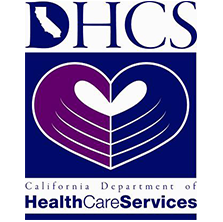Drug Abuse Treatment Programs
Drug Abuse Treatment Programs: Help is Available
For individuals who have a history of using drugs in excess, drug abuse treatment programs provide the opportunity and the necessary tools to start life anew.
What is Drug Abuse?
Drug abuse can be defined as excessive or gratuitous use of drugs. Though using drugs is never a wise choice, there are those who choose to use drugs recreationally and do so sparingly. Drug abusers are those who use in excess, allowing drugs to interfere with their priorities in life. Drug abuse treatment programs help these individuals get their lives back on the right track and learn how to live without drugs and alcohol.
How to tell if a Loved One is Using Drugs?
An individual who is abusing drugs will display both physical and psychological signs. The physical symptoms of drug abuse are often the most pronounced. Individuals who have begun to abuse drugs will often exhibit a rapid change in weight (usually weight loss, but weight gain can also be a symptom). Abnormal eating habits and unusual sleep patterns are other signs of drug abuse that are quite noticeable to close friends and family. Prolonged drug use causes a generally unhealthy appearance and demeanor – sallow or pale complexion, bloodshot eyes, congestion, and persistent cough can all be signifiers of a drug habit. The first stage of all drug abuse treatment programs is physical detoxification, in which the body reacquaints itself to sobriety.
The psychological signs of drug abuse can be subtler and usually take longer to develop. The first psychological ramifications of drug abuse tend to be chronic depression and heightened anxiety levels. Over time, particularly with the use of amphetamines or other “uppers,” paranoia can set in, and delusions are not uncommon. Drug abuse treatment programs help drug abusers break these mental patterns.
Mysterious and secretive behavior is almost always noticeable in drug abusers. Because of the illegal and stigmatized nature of drug use, those who abuse drugs tend to be evasive and reclusive, keeping distance between their loved ones and their drug habit. Drug abusers will likely have a significant quantity of drugs and paraphernalia hidden within their living space.
If someone you love is acting strangely, exhibiting physical abnormalities, and distancing themselves from you and others, they may be abusing drugs. Drug abuse treatment programs can help.
How can you help?
If you believe that a loved one is abusing drugs, research drug abuse treatment programs before confronting them about their problem. Understanding drug abuse and how drug abuse treatment programs function will help you keep the confrontation productive and focused on solution.
Drug abusers are usually resistant to the idea of treatment. Unless they have experienced significant negative consequences of their drug use, they are unlikely to want to undergo the challenging experience of getting sober. Though it is extremely difficult to set boundaries with those you love, family and close friends have the power to awaken drug abusers to the severity of their problem by doing just that. Often, these boundaries will relate to financial support. For example, the mother of a drug abuser may need to tell her daughter that she can no longer live under her roof if she continues to use drugs. A friend may need to refuse to spend time around her closest comrade when she is under the influence. When a drug abuser finally realizes what they have to lose, they will be more receptive when drug abuse treatment programs are presented as a potential solution.
Drug Abuse Treatment Programs: How it works?
Drug abuse treatment programs help drug abusers recover physically, emotionally and psychologically from long-term substance abuse, providing them with the tools they need to start living happily and healthfully. The best drug treatment programs utilize a multifaceted treatment approach to emphasize a balanced lifestyle. Drug abusers heal physically by developing healthy eating habits and exercise routines. They heal emotionally by learning to relate to others and cope with life’s stresses in a productive manner.
Drug abuse can be either a cause or a symptom of psychological problems, but most often it is a combination of the two. As previously mentioned, there are clear psychological side effects to prolonged drug abuse. The complications that arise as a result of substance abuse can usually be alleviated with the help of drug abuse treatment programs. The psychological issues that are more difficult to correct are those that predate drug use. These are the same issues that are often responsible for an individual’s initial attraction to drugs. Though it can take years to work through deep psychological problems, drug abuse treatment programs take the crucial first step by removing substances and introducing individual therapy.
For women with a history of drug abuse, it is wise to choose a gender-specific treatment program, as an all-female environment creates a safe space in which women can speak openly about all aspects of their drug abuse. Safe Harbor Treatment Center for Women is highly regarded amongst drug abuse treatment programs, due to both its effective treatment plan and its nurturing community. Safe Harbor Treatment Center is determined to help women learn the skills that will allow them to lead full and happy lives. Healthy living, especially for women recovering from drug abuse, is a matter of maintaining spiritual, physical, mental and emotional balance.
Safe Harbor’s treatment program nurtures women in all of these areas. Structured groups on nutrition, body image and eating disorders help women tackle issues that can keep them physically sick even after drugs are out of the picture. Meditation, yoga and tai chi help women foster a spiritual connection. Emotionally and psychologically, group and individual therapy help women start to work through their core issues.
What makes Safe Harbor truly unique is its tight-knit community of residents, alumnae, support staff and counselors, all women who have recovered from alcohol and drug abuse. This common bond between all members of the community makes Safe Harbor feel like a family, rather than a facility. Any woman looking to leave drug abuse behind her and begin a healthy and fulfilling life has a home waiting for her at Safe Harbor.




